|
||||||||||||||||||||||||||||||||||||||||
|---|---|---|---|---|---|---|---|---|---|---|---|---|---|---|---|---|---|---|---|---|---|---|---|---|---|---|---|---|---|---|---|---|---|---|---|---|---|---|---|---|
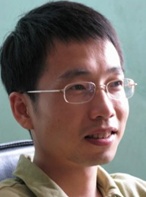 |
Jianfei CAI Title 1 : Deep Learning Based Vison Applications with Limited Labels Part I |
| Jianfei is currently Cluster Deputy Director of Data Science & AI Research center (DSAIR) and Associate Director of ROSE Lab at Nanyang Technology University (NTU). He has served as the Head of Visual & Interactive Computing Division and the Head of Computer Communication Division at NTU. His major research interests include computer vision, multimedia and deep learning. He has published more than 200 technical papers in international conferences and journals. He is a co-recipient of paper awards in ACCV, IEEE ICIP and MMSP. His group’s recent CVPR’18 spot light paper is being listed in The Best of the Physics arXiv by MIT Tech. Review. He has served as the leading Technical Program Chair for IEEE International Conference on Multimedia & Expo (ICME) 2012. He is serving or has served as an Associate Editor for IEEE Trans on Image Processing (T-IP), IEEE Trans on Multimedia (TMM) and IEEE Trans on Circuits and Systems for Video Technology (T-CSVT). He also serves as the Chair for IEEE CAS Visual Signal Processing and Communication Technical Committee (VSPC-TC). |
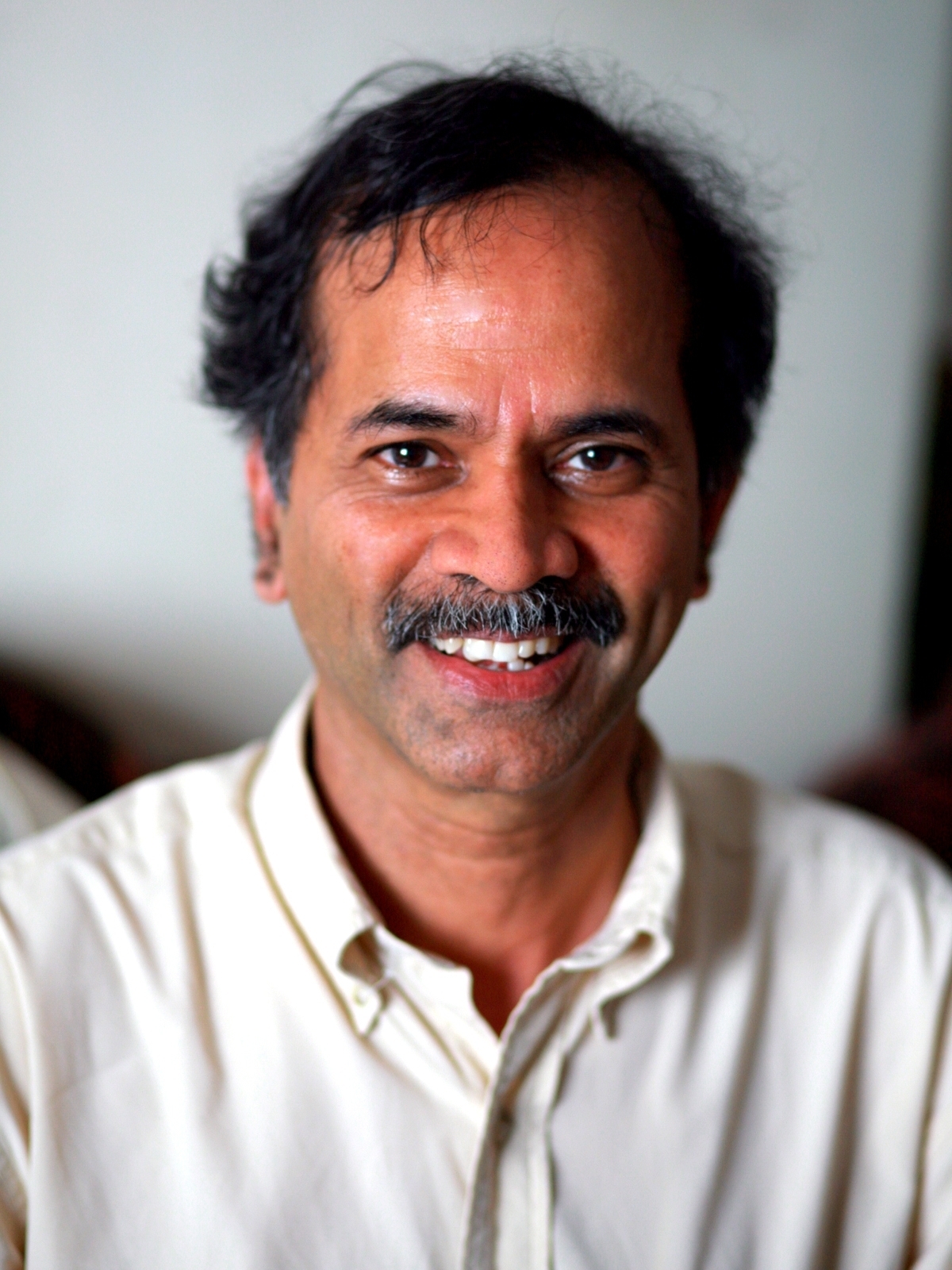 |
Rama CHELLAPPA
Title 1 : IEEE SPS DISTINGUISHED LECTURE |
| Prof. Rama Chellappa received the B.E. (Hons.) degree from the University of Madras, Madras, India, in 1975, the M.E. (Distinction) degree from the Indian Institute of Science, Bangalore, India, in 1977, and the M.S.E.E. and Ph.D. degrees in electrical engineering from Purdue University, West Lafayette, IN, in 1978 and 1981, respectively. Since 1991, he has been a Professor of Electrical Engineering and an affiliate Professor of Computer Science with the University of Maryland, College Park. He is also affiliated with the Center for Automation Research (Director) and the Institute for Advanced Computer Studies (Permanent Member). In 2005, he was named a Minta Martin Professor of Engineering. Prior to joining the University of Maryland, he was an Assistant (1981–1986) and Associate Professor (1986–1991) and Director of the Signal and Image Processing Institute (1988–1990) with the University of Southern California, Los Angeles. Over the last 30 years, he has published numerous book chapters, peer-reviewed journal and conference papers. He has coauthored and coedited books on MRFs, face and gait recognition and collected works on image processing and analysis. He has served as a Co-Editor-in-Chief of Graphical Models and Image Processing. His current research interests are face and gait analysis, markerless motion capture, 3-D modeling from video, image and video-based recognition and exploitation, compressive sensing, and hyper spectral processing. Prof. Chellappa has received several awards, including a National Science Foundation Presidential Young Investigator Award, four IBM Faculty Development Awards, an Excellence in Teaching Award from the School of Engineering at USC, and two paper awards from the International Association of Pattern Recognition. He received the Society, Technical Achievement and Meritorious Service Awards from the IEEE Signal Processing Society. He also received the Technical Achievement and Meritorious Service Awards from the IEEE Computer Society. At the University of Maryland, he was elected as a Distinguished Faculty Research Fellow, as a Distinguished Scholar-Teacher, received the Outstanding Faculty Research Award and the Poole and Kent Teaching Award for the Senior Faculty from the College of Engineering, an Outstanding Innovator Award from the Office of Technology Commercialization and an Outstanding GEMSTONE Mentor Award. In 2010, he was recognized as an Outstanding ECE by Purdue University. He is a Fellow of the IEEE, the International Association for Pattern Recognition and the Optical Society of America. He has served as an associate editor for four IEEE publications and as the Editor-in-Chief of the IEEE TRANSACTIONS ON PATTERN ANALYSIS AND MACHINE INTELLIGENCE. He served as a member of the IEEE Signal Processing Society Board of Governors and as its Vice President of Awards and Membership. He has served as a General and Technical Program Chair for several IEEE international and national conferences and workshops. He is a Golden Core Member of the IEEE Computer Society and served a two-year term as a Distinguished Lecturer of the IEEE Signal Processing Society. Recently, he completed a two-year term as the President of IEEE Biometrics Council. |
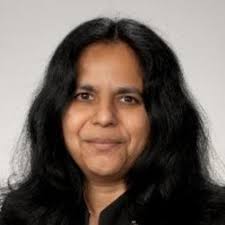 |
Shubha KADAMBE Title 1 : Overview of Machine Learning/Artificial Intelligence Algorithms and Their Applications Part I |
| Dr. Shubha Kadambe is currently a Senior Engineering Fellow at the System Engineering, Integration and Test (SEIT) Center, Raytheon Space and Airborne Systems, El Segundo, CA. She obtained her PhD in Electrical Engineering from the University of Rhode Island. She is the technical/algorithm lead and PI on several projects focused on ML/AI and advanced algorithms development. In addition she is involved in CRAD pursuits/captures. She has in-depth experience in developing advanced and innovative algorithms for various applications (e.g., EW, radar, sonar, speech and communications). Prior to joining Raytheon in February of 2013, Dr. Kadambe was a technical director at Rockwell Collins, Inc. where she developed a Cognitive Electronic Warfare architecture and system (by leading a group of engineers) for communication from concepts to prototype system. Dr. Kadambe was a program officer at the Office of Naval Research (ONR) prior to joining Rockwell Collins. At ONR she managed signal/image processing and understanding, Multi university research initiative and SBIR programs. Dr. Kadambe has held various research positions at HRL Labs, Atlantic Aerospace Electronics Corporation and AT&T Bell Labs. She has successfully completed several DARPA and other DoD funded projects at these facilities as a PI/PM. She has over 80 refereed journal and conference papers, seven invited chapters, one IEEE video tutorial on Wavelets and its applications, and 30 US patents (26 issued and 4 under review) and four trade secrets to her credit. She has taught graduate and undergraduate courses at California Institute of Technology, University of California Los Angeles, University of Southern California and University of Maryland Baltimore Campus. She is an active senior member of IEEE and has served as an associated editor of IEEE transactions on signal processing and technical committee member of many international conferences. She has also served as a technical session chair at these conferences. |
 |
Sanghoon LEE Title 1 : Video Object Segmentation |
| Sanghoon Lee (M’05–SM’12) received the B.S. in E.E. from Yonsei University in 1989 and the M.S. in E.E. from KAIST in 1991. From 1991 to 1996, he worked for Korea Telecom. He received his Ph.D. in E.E. from the University of Texas at Austin in 2000. From 1999 to 2002, he worked for Lucent Technologies. In March 2003, he joined the faculty of the Department of Electrical and Electronics Engineering, Yonsei University, Seoul, Korea, where he is a Full Professor. He was an Associate Editor of the IEEE Trans. Image Processing (2010-2014), an Editor of the Journal of Communications and Networks (JCN) (2009-2015), and a Guest Editor for IEEE Trans. Image Processing (2013) and Journal of Electronic Imaging (2015). He has been an Associate Editor of IEEE Signal Processing Letters (2014- ) and a Chair of the IEEE P3333.1 Quality Assessment Working Group (2011-). He currently serves as a Chair of the APSIPA IVM Technical Committee (2018-), and a Member in the Technical Committees of the IEEE MMSP (2016-) and IVMSP (2014-). He has participated in the international activities as a General Chair of the 2013 IEEE IVMSP Workshop, a Technical Program Co-chair of the IEEE International Conference on Multimedia and Expo (ICME) 2018, the Asia-Pacific Signal and Information Processing Association Annual Summit and Conference (APSIPA) 2018, the International Conference on Information Networking (ICOIN) 2014, the Global 3D Forum 2012 and 2013, and the Exhibition Chair of IEEE International Conference on Acoustics, Speech and Signal Processing (ICASSP) 2018, the Local Arrangements Chair of IEEE International Symposium On Broadband Multimedia Systems and Broadcasting (BMSB), 2012. He received a 2015 Yonsei Academic Award and 2010, 2015, 2016, 2017 Yonsei Outstanding Accomplishment Awards, a 2012 Special Service Award from the IEEE Broadcast Technology Society, a 2013 Special Service Award from the IEEE Signal Processing Society, a Humantech Thesis Award of Samsung Electronics, 2013, an IEEE Seoul Section Student Paper Contest Award, 2012, and a Qualcomm Innovation Award, Qualcomm, 2012. His research interests include deep learning, image&video quality of experience, computer vision and computer graphics. |
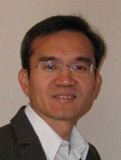 |
Chang-Tsun LI |
| Chang-Tsun Li received the BEng degree in electrical engineering from National Defence University (NDU), Taiwan, in 1987, the MSc degree in computer science from U.S. Naval Postgraduate School, USA, in 1992, and the PhD degree in computer science from the University of Warwick, UK, in 1998. He was an associate professor of the Department of Electrical Engineering at NDU during 1998-2002 and a visiting professor of the Department of Computer Science at U.S. Naval Postgraduate School in the second half of 2001. He was a professor of the Department of Computer Science at the University of Warwick, UK, until Dec 2016. He is currently a professor of the School of Computing and Mathematics, and Director of Data Science Research Unit, Charles Sturt University, Australia. His research interests include multimedia forensics and security, biometrics, data mining, machine learning, data analytics, computer vision, image processing, pattern recognition, bioinformatics, and content-based image retrieval. The outcomes of his multimedia forensics research have been translated into award-winning commercial products protected by a series of international patents and have been used by a number of police forces and courts of law around the world. He is currently Associate Editor of the EURASIP Journal of Image and Video Processing (JIVP) and Associate of Editor of IET Biometrics. He involved in the organisation of many international conferences and workshops and also served as member of the international program committees for several international conferences. He is also actively contributing keynote speeches and talks at various international events. In the past 6 years, Chang-Tsun Li has been active in facilitating the cross-fertilisation of multimedia forensics and biometrics, and has secured a number of major EU funding to achieve this objective. He was the Coordinator and Principal Investigator of the international project entitled Digital Image and Video Forensics funded by the EU's Seventh Framework Programme (FP7) 2010 to 2014. He was a Working Group Chair of the recently completed EU COST Action IC1106: Integrating Biometrics and Forensics for the Digital Age funded by European Cooperation in Science and Technology (COST) from 2012 to 2016. He is currently the Coordinator and Principal Investigator of the EU Horizon 2020 project, entitled Computer Vision Enabled Multimedia Forensics and People Identification (acronym: IDENTITY). The IDENTITY project has a consortium consisting of 16 institutions from 12 countries and will be running for four years, from January 2016 to December 2019. He is also the representative of CSU as International Partner of the EU COST Action CA16101: Multi-modal Imaging of Forensic Science Evidence - Tools for Forensic Science, 2017 to 2021. |
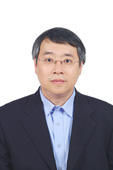 |
Mark LIAO Title 1 : Intelligent Vision-Based Surveillance Systems |
| Mark Liao received his Ph.D degree in electrical engineering from Northwestern University in 1990. In July 1991, he joined the Institute of Information Science, Academia Sinica, Taiwan and currently, is a Distinguished Research Fellow. He has worked in the fields of multimedia signal processing, computer vision, pattern recognition, multimedia protection, and artificial intelligence for more than 25 years. During 2009-2011, he was the Division Chair of the computer science and information engineering division II, National Science Council of Taiwan. He is jointly appointed as an Honorary Chair Professor of National Chiao-Tung University. During 2009-2012, he was jointly appointed as the Multimedia Information Chair Professor of National Chung Hsing University. Since August 2010, he has been appointed as an Adjunct Chair Professor of Chung Yuan Christian University. From August 2014 to July 2016, he was appointed as an Honorary Chair Professor of National Sun Yat-sen University. He received the Young Investigators' Award from Academia Sinica in 1998; the Distinguished Research Award from the National Science Council in 2003, 2010 and 2013; the Academia Sinica Investigator Award in 2010; and the TECO Award from the TECO Foundation in 2016. His professional activities include: Co-Chair, 2004 International Conference on Multimedia and Exposition (ICME); Technical Co-chair, 2007 ICME; President, Image Processing and Pattern Recognition Society of Taiwan (2006-08); Editorial Board Member, IEEE Signal Processing Magazine (2010-13); Associate Editor, IEEE Transactions on Image Processing (2009-13), IEEE Transactions on Information Forensics and Security (2009-12) and IEEE Transactions on Multimedia (1998-2001). He has been a Fellow of the IEEE since 2013. |